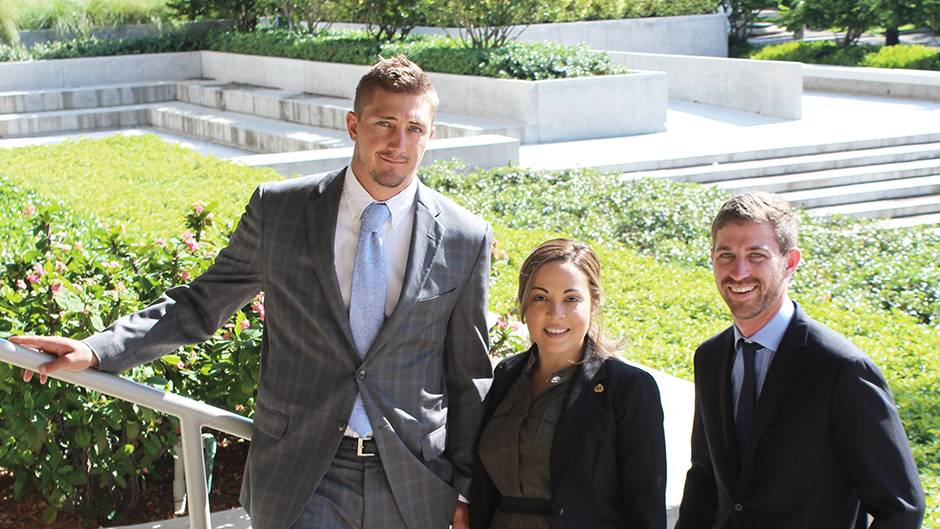The attorneys and certified legal interns from Miami Law’s Health Rights Clinic have filed a federal suit against the Social Security Administration on behalf of 12 indigent and disabled clients who have been waiting as long as 26 months to secure a hearing or receive rulings from a Social Security judge.
The suit asks the government to compel the Social Security Administration to “promptly schedule, hear, and adjudicate” the claims of their clients.
Eleven are U.S. citizens and one is a legal resident; they range in age from 62 years old to a 14-year-old boy. They have all been initially denied either Supplemental Security Income or Social Security Disability and are awaiting a hearing before a federal Administrative Law Judge.
One of the twelve is Maria del Carmen Ruiz, a 62-year-old woman who is suffering from years of physical and emotional abuse; she has been waiting for 26 months for a hearing to be scheduled.
“The delay defeats the Social Security’s purpose of helping to keep people from poverty, and, in the case our clients, has the harshest impact on the poorest population. Miami has one of the highest poverty rates in the country, which makes the extreme delay in Miami that much more unfair,” said JoNel Newman, Director of the Health Rights Clinic.
Miami has the longest wait times in the country. “We don’t know exactly why this is the case,” said Zach Lipshultz, a third-year law student in the Clinic, who is working on the case. “It might be due to a lack of administrative judges, or staffing, or something else with Social Security. It might also relate to the extreme poverty and extreme need for disability benefits in Miami-Dade County.”
In Florida, the overwhelming number of applications is denied (70% of initial applications and 90% on reconsideration); thereafter, the applicant is entitled to a hearing before an administrative law judge. The hearing is the only point in process where the applicant can present witnesses, and is the stage where the process is most favorable to the applicant. Nationally, over 76% of cases heard by Administrative Law Judges in 2010 were favorable to the applicant.
“Comparing the average wait time in Miami to other cities, Social Security applicants here endure delays that are substantially longer than anywhere else in the United States,” said Taylor Schmaltz, a third-year law student in the Clinic who is working on the case. Wait times to appear before a judge in Miami average almost two years; the next worst city in the nation’s wait time – Washington, D.C. – is a year-and-a-half.
Lead plaintiff, Bridgette Johnson, has been waiting more than two years and still has not seen a judge. “It has been very difficult to make ends meet during the 26 months I have had to wait for Social Security to hear my case,” Johnson said. “I now try to work a few days every month just to get by. This causes me much pain, but I don’t feel I have any other option.”
Once Social Security benefits are granted, the person also qualifies for Medicaid. “The impact of the delay is incredibly harsh in Miami, because in Florida there is no Medicaid expansion,” said Ian McKenzie, a third-year law student and Certified Legal Intern in the Clinic who is also working on the case. “As a result, the only way for a disabled, impoverished adult in Florida to receive health insurance is to have their disability case adjudicated and approved by Social Security. We have many clients in the Clinic who go without adequate health care for years because of these delays.”
Another client, Maria del Carmen Ruiz has been unable to work for several years and suffers from multiple chronic diseases. She fits the criteria for entitlement for disability benefits. As a result of the delay, she is unable to afford her medication and her condition has worsened. Such is the case with all of the plaintiffs represented by the lawyers and students from the Health Rights Clinic.
Melissa Swain, Assistant Director of the Health Rights Clinic, said, moving forward, “the lawsuit is being served, and the Government has 60 days to answer.”

